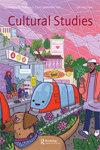Migrating narratives: re-inscribing black diaspora cultures
IF 1.6
3区 社会学
Q1 ANTHROPOLOGY
引用次数: 0
Abstract
ABSTRACT This essay traces the predominant counter-hegemonic, counter-discursive political and cultural models that obtain on either side of the Atlantic – the black Atlantic and the (pan-)Africanist. Typically read as disparate, even oppositional, competing ideologies, this essay examines the ways in which black Atlantic and Africanist thought migrate – travelling and journeying in ironic echoes and reverberations – across space and time, following similar contours that inscribe troublingly totalizing and exclusionary ideational narratives of black diaspora cultures and ontologies. Engaging the delimiting, signifying imprints and prescriptive modalities that inform and structure both theoretical models, this essay attempts to put black Atlantic and Africanist paradigms into conversation in ways that expand critical studies of black diasporic cultures, African cultures, and their intersecting relationships. In this regard, arguing that such intersectional relations can be evidenced in the migratory, border-crossing ethos and transgressive aesthetic of contemporary African diasporic literature, the essay’s particular reading of Adichie’s Americanah and Bulawayo’s We Need New Names suggests the ways in which these texts advance an ethical imperative for more malleable, inclusive and expansive, ways of reading and re-inscribing the (black) world.移民叙事:重新书写散居海外的黑人文化
摘要本文追溯了大西洋两岸主要的反霸权、反话语的政治和文化模式——黑大西洋和泛非主义。这篇文章通常被解读为不同的、甚至对立的、相互竞争的意识形态,它考察了大西洋黑人和非洲主义思想在空间和时间上的迁移方式——在讽刺的回声和回响中旅行和旅行,遵循着相似的轮廓,对黑人散居文化和本体进行了令人不安的概括和排斥性的概念叙事。本文试图将黑人大西洋主义和非洲主义范式纳入对话,以扩展对黑人流散文化、非洲文化及其交叉关系的批判性研究。在这方面,文章认为这种交叉关系可以在当代非洲流散文学的移民、跨界精神和越轨美学中得到证明,对阿迪奇的《美国》和布拉瓦约的《我们需要新名字》的特殊解读表明,这些文本以何种方式推进了更具可塑性、包容性和扩展性的道德要求,阅读和改写(黑人)世界的方式。
本文章由计算机程序翻译,如有差异,请以英文原文为准。
求助全文
约1分钟内获得全文
求助全文
来源期刊

Cultural Studies
Multiple-
CiteScore
3.50
自引率
6.70%
发文量
0
期刊介绍:
Cultural Studies is an international journal which explores the relation between cultural practices, everyday life, material, economic, political, geographical and historical contexts. It fosters more open analytic, critical and political conversations by encouraging people to push the dialogue into fresh, uncharted territory. It also aims to intervene in the processes by which the existing techniques, institutions and structures of power are reproduced, resisted and transformed. Cultural Studies understands the term "culture" inclusively rather than exclusively, and publishes essays which encourage significant intellectual and political experimentation, intervention and dialogue.
 求助内容:
求助内容: 应助结果提醒方式:
应助结果提醒方式:


